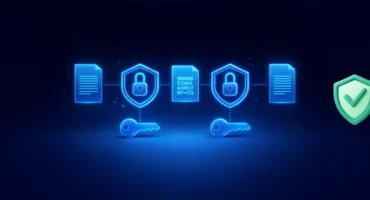“Not a Virus” What Is It? And How to Deal With This Notification?
So your antivirus has found something which is called “not a virus”? Despite the fact it is not a virus, there is still a reason to be worried. How can you stop it, and what is “not a virus”?
What is the definition of “not a virus”?
The antivirus is designed to detect possible viruses (those are malicious programs that might harm the system). Nevertheless, the antivirus device will also flag riskware and adware that is hidden inside the applications being causes for concern. Nevertheless, the antivirus device will also flag riskware and adware that is hidden inside the applications being causes for concern, and it might label such items as potentially unwanted programs even when they are bundled with legitimate software. It might label such threats as the “not a virus.”
Are adware and riskware viruses?
No, they are not. However, adware and riskware might be utilized to cause the same damage as a virus might. Adware and riskware feature potential to be harmful and might pose massive risks to privacy. Here is how:
What is potential harm?
Riskware describes specific applications that might damage your tool when installed, even when they first appear to be legitimate programs. Riskware might be embedded into legitimate applications, which, when in the malicious users’ hands, might be utilized to copy, modify, delete, and block information or disrupt the device’s performance.
What is a potential privacy risk?
Adware might be responsible for such annoying pop-up advertisements you might get if you utilize the application, and some shady bundles might try to install adware quietly in the background when you click through them. When you click on them, some of such advertisements might install malware and viruses onto your tool.
Even legitimate applications might carry adware tracking your behavior. Therefore, the owners might sell to the advertisers, making money. You cannot tell which information parts might be sold. It is possible to be your date of birth, how often you utilize the application, your name, etc.
What are the main symptoms of having “not a virus”?
- Pop-up advertisements might appear, recommending other software or fake updates.
- Online adverts’ banners might be injected with the sites you visit.
- You may find applications and programs on your tool which you have not installed yourself.
What might trigger “not a virus” warnings?
1. Remote admin applications.
Remote admin apps often hide the malware packages. If you are aware of what you have downloaded with the remote admin application, this is superb. However, if you have not, it will be flagged as “not a virus.”
2. Download managers.
Download managers might be sneaky devils, especially when you are installing software from third-party sites without reading each step carefully. They are known to download the extra files when displaying a gray notification utilizing a gray font so as to trick you into providing your consent. Therefore, the download manager may be flagged with the antivirus as riskware, and thus, “not a virus.”
3. Browser toolbars.
A few browser toolbars back up adware being a component of their features that may be flagged like “not a virus” with your antivirus software.
4. Bitcoin miners.
Miner applications leach off the tool’s computing power in order to mine Bitcoins, utilizing your tool as a section of a swarming botnet. Mining applications might disrupt and slow your tool down and might be installed without the consent being a component of a malware package.
What is the best way to protect yourself against “not a virus” warnings?
The antivirus software would only inform you about the potential threat with the “not a virus” warning. It will not delete or block riskware, as it might be an application’s functional aspect.
The way to stay vigilant:
- If you download the application, you should always read the policy of it. You might select or opt out of the way your information is utilized and shared by the application.
- The vast majority of antivirus devices, from simple free tools to full suites like Kaspersky Internet security, feature the “Detect other software” and “Threats” part in their settings. You should enable that setting in order to be informed about riskware, which might creep into your tool without you being aware of it.
- Utilize a malware-cleaner application to remove and scan malicious files from your tool.
- Utilize a VPN to eliminate pop-up advertisements that might be downloaded with the malware. The VeePN application will not detect malware. However, its CyberSec feature will inform you about the malicious sites and eliminate pop-up advertisements that might infect the tool when you click on them. The VPN might do all of that, securing the online information against miners and spies.
VeePN is freedom
Download VeePN Client for All Platforms
Enjoy a smooth VPN experience anywhere, anytime. No matter the device you have — phone or laptop, tablet or router — VeePN’s next-gen data protection and ultra-fast speeds will cover all of them.
Download for PC Download for Mac IOS and Android App
IOS and Android App
Want secure browsing while reading this?
See the difference for yourself - Try VeePN PRO for 3-days for $1, no risk, no pressure.
Start My $1 TrialThen VeePN PRO 1-year plan








